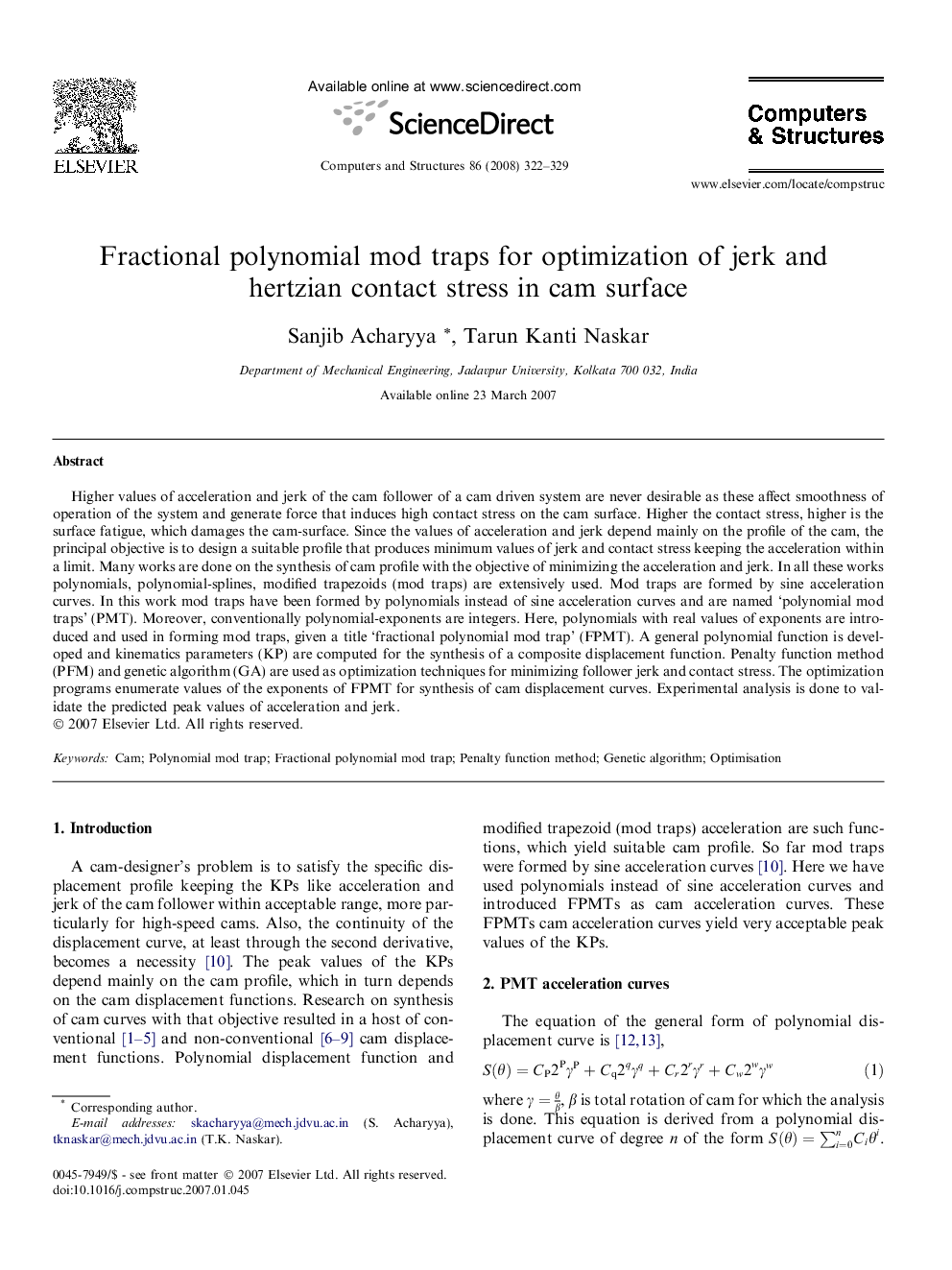| Article ID | Journal | Published Year | Pages | File Type |
|---|---|---|---|---|
| 511086 | Computers & Structures | 2008 | 8 Pages |
Higher values of acceleration and jerk of the cam follower of a cam driven system are never desirable as these affect smoothness of operation of the system and generate force that induces high contact stress on the cam surface. Higher the contact stress, higher is the surface fatigue, which damages the cam-surface. Since the values of acceleration and jerk depend mainly on the profile of the cam, the principal objective is to design a suitable profile that produces minimum values of jerk and contact stress keeping the acceleration within a limit. Many works are done on the synthesis of cam profile with the objective of minimizing the acceleration and jerk. In all these works polynomials, polynomial-splines, modified trapezoids (mod traps) are extensively used. Mod traps are formed by sine acceleration curves. In this work mod traps have been formed by polynomials instead of sine acceleration curves and are named ‘polynomial mod traps’ (PMT). Moreover, conventionally polynomial-exponents are integers. Here, polynomials with real values of exponents are introduced and used in forming mod traps, given a title ‘fractional polynomial mod trap’ (FPMT). A general polynomial function is developed and kinematics parameters (KP) are computed for the synthesis of a composite displacement function. Penalty function method (PFM) and genetic algorithm (GA) are used as optimization techniques for minimizing follower jerk and contact stress. The optimization programs enumerate values of the exponents of FPMT for synthesis of cam displacement curves. Experimental analysis is done to validate the predicted peak values of acceleration and jerk.
